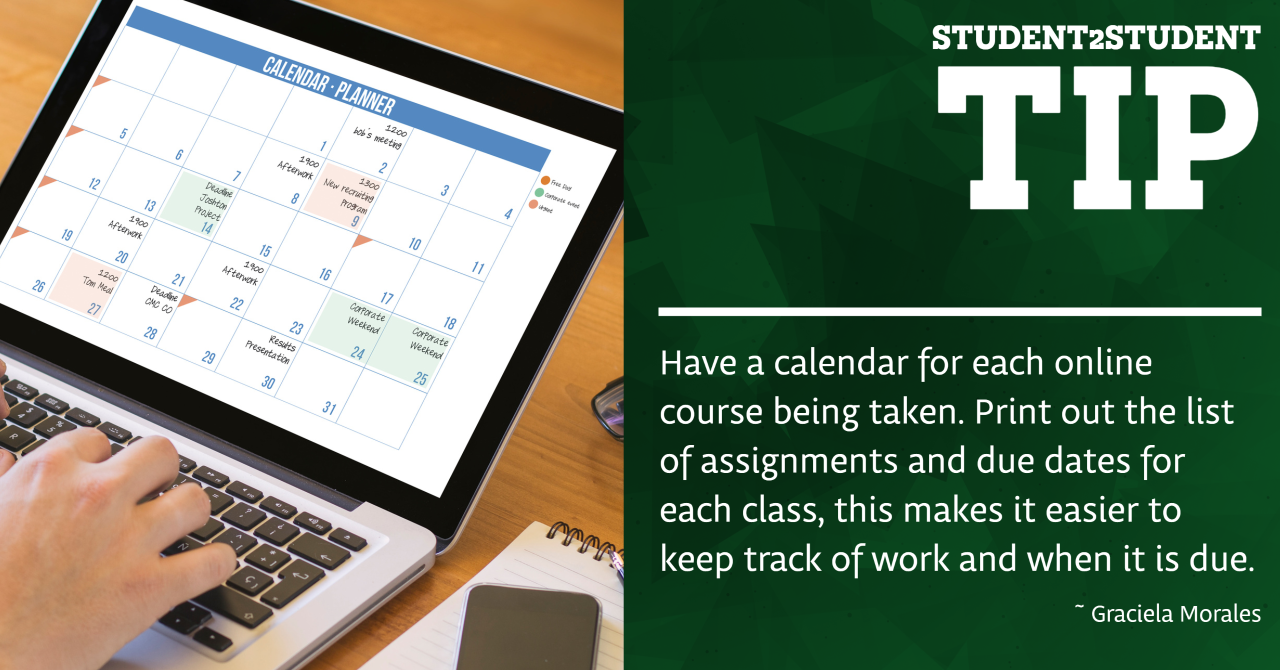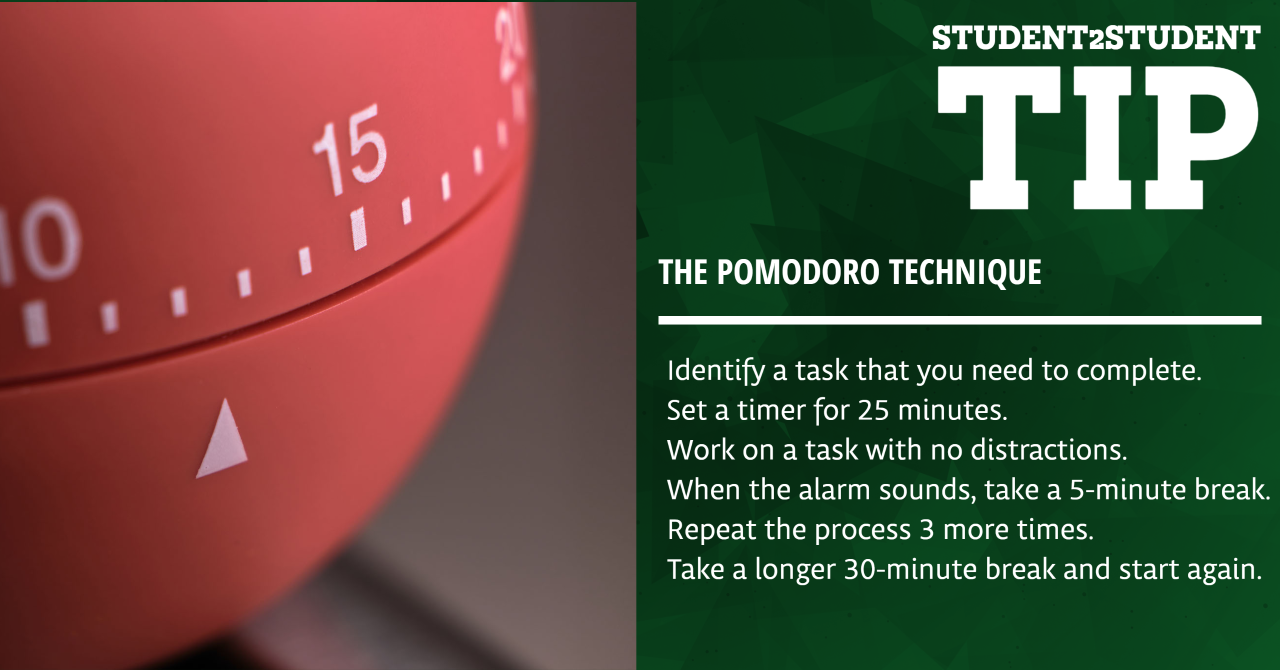Manage Your Time
Success in your online course is most influenced by your ability to maintain a consistent schedule. The organizational and time-management strategies below will help you balance your home, work, and school commitments.
Make a Schedule
Begin by making a realistic schedule of how you currently spend your time. You can use this weekly schedule grid from The Tutoring Center to develop a schedule. Explore other resources from the The Tutoring Center for other tips.
Organizational Tools
Mark due dates where you will see them easily and regularly. This might include to-do lists, Google calendar, smartphone reminders, a daily or weekly planner, or well-placed reminders and motivational notes that relate to your goals. EBSCO Learning Expert has micro-learning on organizational strategies to get you started.

Block Time for Coursework and Breaks
Consider the time of the day that you're best able to focus and the amount of time you can usually effectively devote to a study task. Try 50-minute blocks, but if the material is difficult or you can't focus for that long, try less time, such as 30 minutes. Breaks should include water, a healthy snack, and a brief activity that will refresh you so you can return to studying. Research has shown memorization and exercise produced a greater ability to recall words than memorization after or without exercise.
Prioritize School
Make a list of the activities you currently do - identify ones you can give up (are less important than your goals for learning). Reward yourself by adding the activities back into your life during semester breaks.
Review Weekly
Each week at a designated time, look over your syllabus and your Blackboard courses and plan your work for the week ahead. Review feedback and grades on assignments that have been returned as well as how you felt about completing your work, and determine if you need to spend additional time studying or perhaps set up a meeting with your instructor. Review the material that you've learned so far and how it relates to new material. This is a good time to identify questions you need to ask your professor.
Plan Your Work Process
Consider starting with your most difficult subject when you sit down to work, as that's when you'll have the most energy. Plan for a few days of turn-around time for communications with your instructor and time to process feedback.
Break down large projects into smaller tasks and set deadlines for those tasks. Get started as early as possible so that you fully understand the scope of the project. You may find there were tasks associated with the project that you didn't anticipate.
Explore time management tips, including the Urgency Matrix, offered by the The Tutoring Center.
Make the Most of Small Blocks of Time
Find time between larger tasks, such as riding the bus, waiting (for a bus, an appointment, for a friend, for your child's soccer game to begin), walking, or exercising. This is good time to review memorized content such as definitions, dates, or theorems, to use your smartphone or tablet to check your course messages, assignments, or discussion board, to do a library search for a resource, or to review tasks or notes.

Seek out resources to help you
Take advantage of The Tutoring Center, the Writing Center, the CCRI library, and your peers.
Next, let's explore how to communicate with instructors effectively.